Cristallo Quartzite Blocks serve as premium raw material for architects, interior designers, and stone fabricators specifying natural stone in luxury residential and commercial projects. These rough-quarried blocks arrive unfinished, enabling custom fabrication for diverse applications. Primary uses include luxury kitchen countertops and islands where hardness and heat resistance are critical, high-end bathroom vanities and shower surrounds in spa-like environments, commercial building lobbies and reception areas requiring durable, elegant surfaces, exterior cladding for upscale residential and hospitality projects, and backlit feature walls exploiting quartzite’s natural translucency. The luminous white-to-cream coloration with subtle gray veining complements minimalist, contemporary, and transitional design aesthetics while providing superior durability compared to marble.
Performance and Quality Detail
Cristallo quartzite delivers compressive strength between 150 and 300 MPa, significantly exceeding granite (130-250 MPa) and marble (75-115 MPa), making it suitable for structural and high-stress applications. Flexural strength ranges from 18 to 28 MPa, allowing unsupported spans up to 90 centimeters for countertops with proper support. Water absorption below 0.2 percent provides exceptional stain resistance and freeze-thaw durability. The Mohs hardness rating of 7 (equivalent to quartz crystal) means Cristallo quartzite resists scratching from knives and most household materials. The characteristic translucency results from tightly interlocked quartz crystals that allow light penetration—slabs cut to 2-3 centimeters thickness can be backlit for dramatic visual effects.
Materials and Manufacturing Notes
Cristallo quartzite forms through metamorphism of pure quartz-rich sandstone under extreme heat and pressure, causing quartz grains to recrystallize into interlocking mosaics. Brazilian quarries in Espírito Santo employ diamond wire saws for primary extraction, followed by controlled splitting along natural planes. Unlike marble’s calcite composition, quartzite’s silica-based structure provides superior hardness but demands specialized cutting equipment. Blocks typically ship with minimal processing to reduce weight and handling costs during international transport.
| Color | Clear white to off-white with subtle gold, cream, and grey veining |
| Origin | Brazil and India |
| Texture | Compact, high-density, fine-grain crystalline structure |
| Size | 180up × 60up, 200up × 100up, 200up × 120up, 260up × 160up |
| Applications | Slab production, tiles, countertops, wall cladding, monuments, architectural use |
| Density | Approximately 2,750 – 2,850 kg/m³ |
Maintenance and Care
Uninstalled blocks require dry, covered storage away from iron-containing materials that could cause rust staining on the light-colored surface. Post-installation, Cristallo quartzite needs sealing every 12-18 months using penetrating sealers formulated for dense, silica-based stones. Unlike marble, quartzite resists acidic substances—lemon juice, vinegar, and wine do not etch the surface. Clean with pH-neutral or mildly alkaline stone cleaners and soft cloths. Abrasive scrubbers can dull polished finishes over time. With proper maintenance, Cristallo quartzite installations can exceed 75 years in interior applications and 50+ years in protected exterior environments.
Installation and Compatibility Notes
Fabrication requires industrial-grade diamond-blade wet saws operating at controlled speeds to prevent thermal stress cracking in the crystalline structure. Experienced quartzite fabricators should handle cutting and installation—quartzite’s hardness increases tool wear and fabrication time compared to granite or marble. For countertops, use epoxy-based adhesives rated for dense natural stone. Wall cladding requires stainless steel anchoring systems with adequate load capacity for quartzite’s density (approximately 2,650 kg/m³). Substrates must provide continuous support for tiles exceeding 40×40 centimeters.
Pros & Cons
Pros:
- Exceptional hardness (Mohs 7) provides superior scratch resistance compared to granite and marble, ideal for high-use surfaces
- Extremely low water absorption (<0.2%) delivers outstanding stain resistance without requiring frequent sealing
- Heat resistant and acid-proof unlike marble—suitable for kitchen countertops with hot pans and acidic foods
- Natural translucency enables backlit applications for dramatic lighting effects in feature walls and bar tops
Cons:
- Premium pricing reflects quarrying location, specialized fabrication requirements, and international shipping costs
- High hardness increases fabrication time and tool wear, resulting in higher processing costs than marble or granite
- Limited availability with longer lead times compared to more common granite varieties due to specific quarry sourcing
Who should buy/Who should not buy
Ideal Buyers:
- Luxury residential homeowners seeking marble-like aesthetics with superior durability for kitchen countertops
- Interior designers specifying backlit feature walls and bar tops in high-end hospitality projects
- Commercial developers for upscale retail, hotel lobbies, and corporate reception areas requiring low-maintenance elegance
- Architects designing exterior cladding for buildings in harsh climates where freeze-thaw resistance is critical
Not Recommended For:
- Budget-conscious projects where engineered quartz provides similar aesthetics at lower cost
- Projects with urgent timelines (under 8 weeks) due to extended international shipping and fabrication requirements
- DIY installations without access to industrial-grade stone fabrication equipment and specialized expertise
FAQs
Q1: What dimensions are available for Cristallo Quartzite Blocks?
Rough blocks typically measure 200-320 cm in length and 160-220 cm in height. Custom sizes may be negotiable with extended lead times and potential premium pricing.
Q2: Can Cristallo quartzite be used for kitchen countertops near stovetops?
Yes, but request resin content disclosure. Blocks with <1% resin treatment maintain full heat resistance. Heavily treated material (>3% resin) should avoid high-heat zones.
Q3: Is Cristallo quartzite suitable for outdoor applications?
Yes, the extremely low water absorption (<0.2%) provides excellent freeze-thaw resistance for exterior cladding in cold climates, meeting ASTM C616 requirements.
Q4: How does Cristallo quartzite compare to marble for kitchen countertops?
Quartzite offers superior hardness (Mohs 7 vs. 3-4), scratch resistance, and complete acid resistance—lemon juice and wine will not etch the surface unlike marble.
Q5: What maintenance does Cristallo quartzite require?
Seal every 12-18 months with penetrating sealer. Clean with pH-neutral or mildly alkaline stone cleaners. Unlike marble, acidic cleaners will not damage the surface but may affect sealant.
Q6: Can Cristallo quartzite be backlit for decorative effects?
Yes, when cut to 2-3 cm thickness, the natural translucency allows LED backlighting for dramatic feature walls, bar tops, and reception desks. Request translucency testing during block selection.

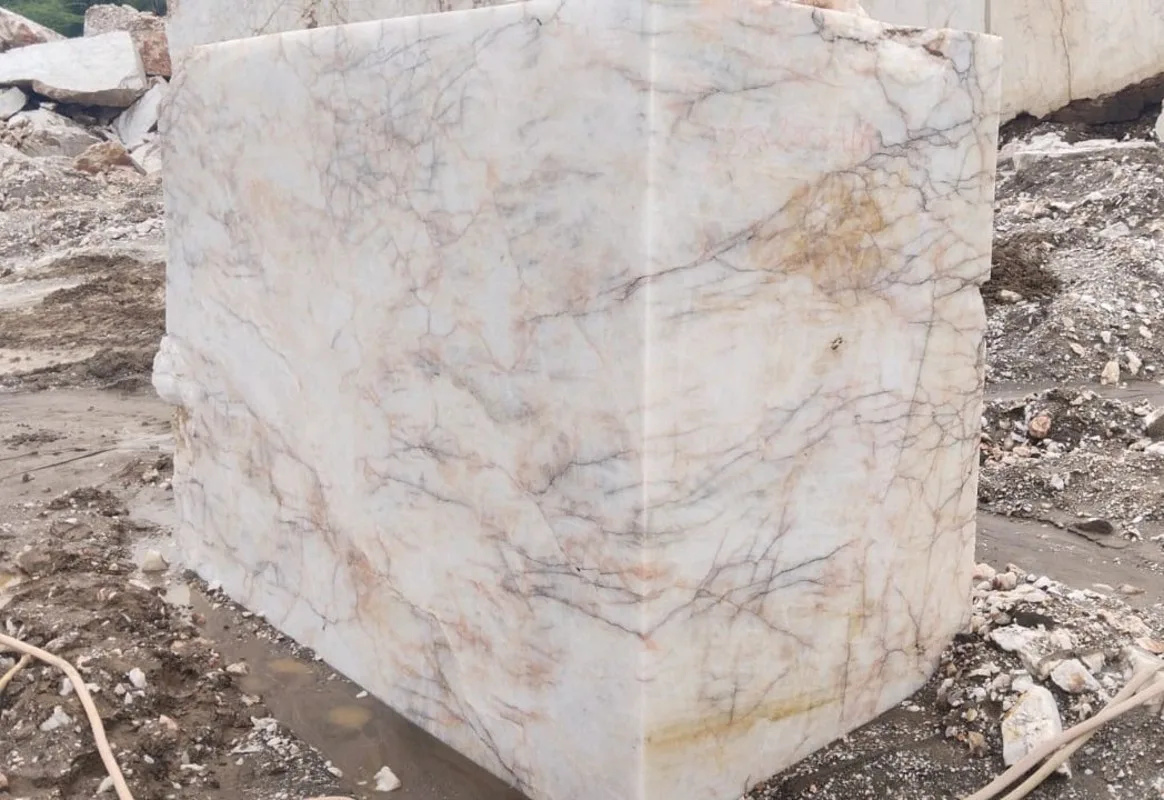
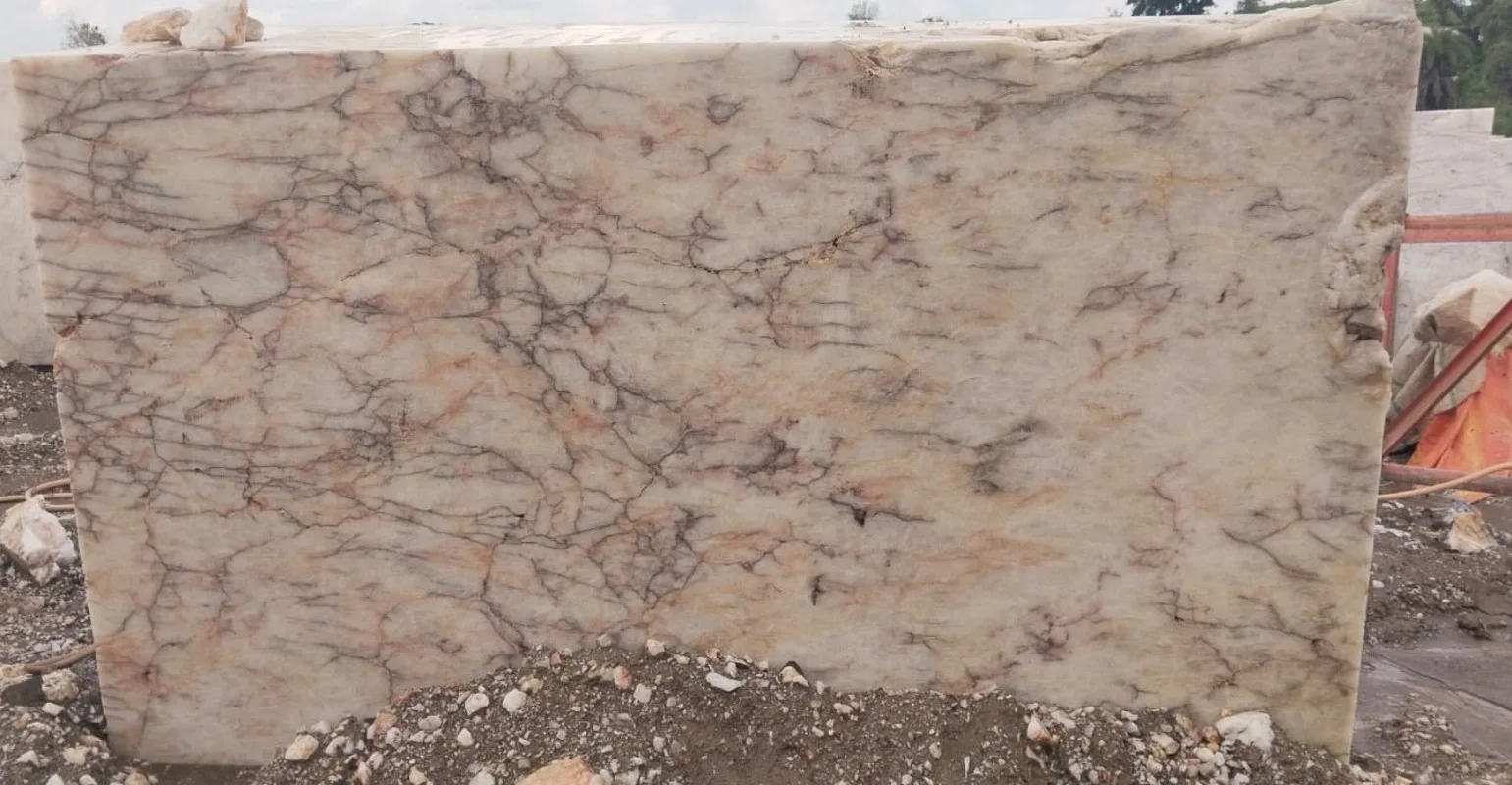
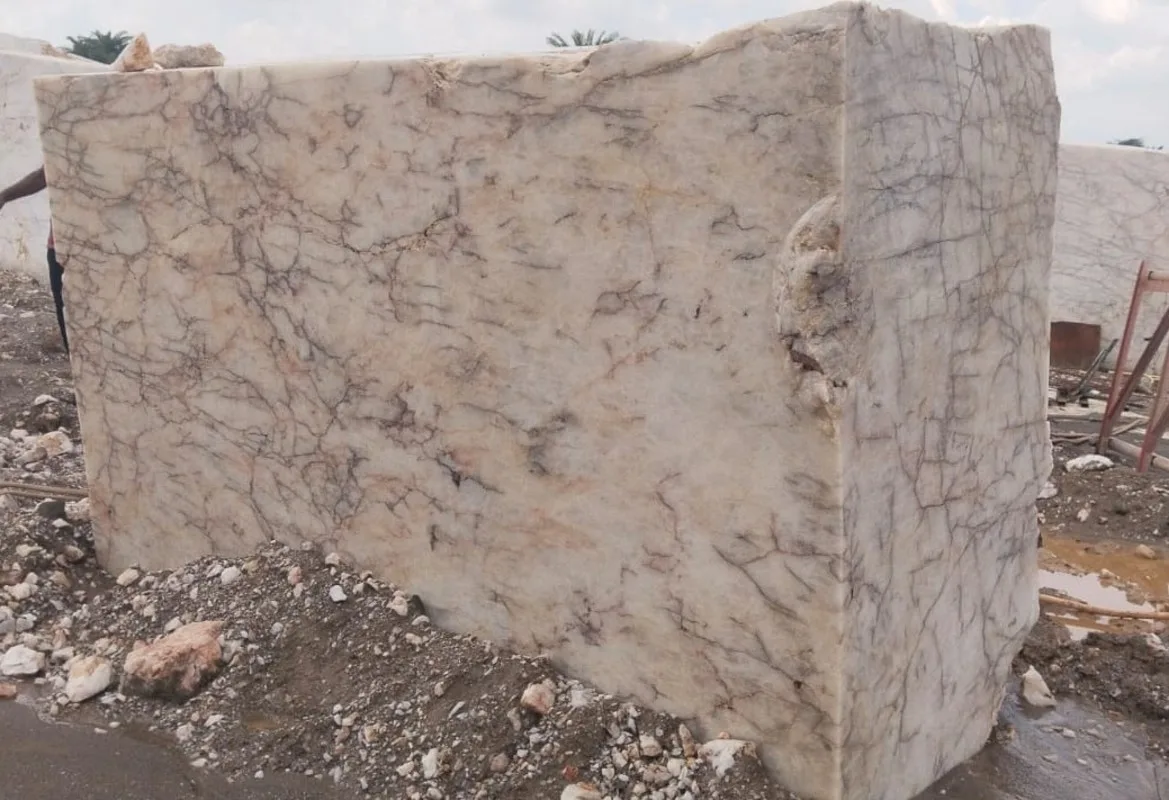
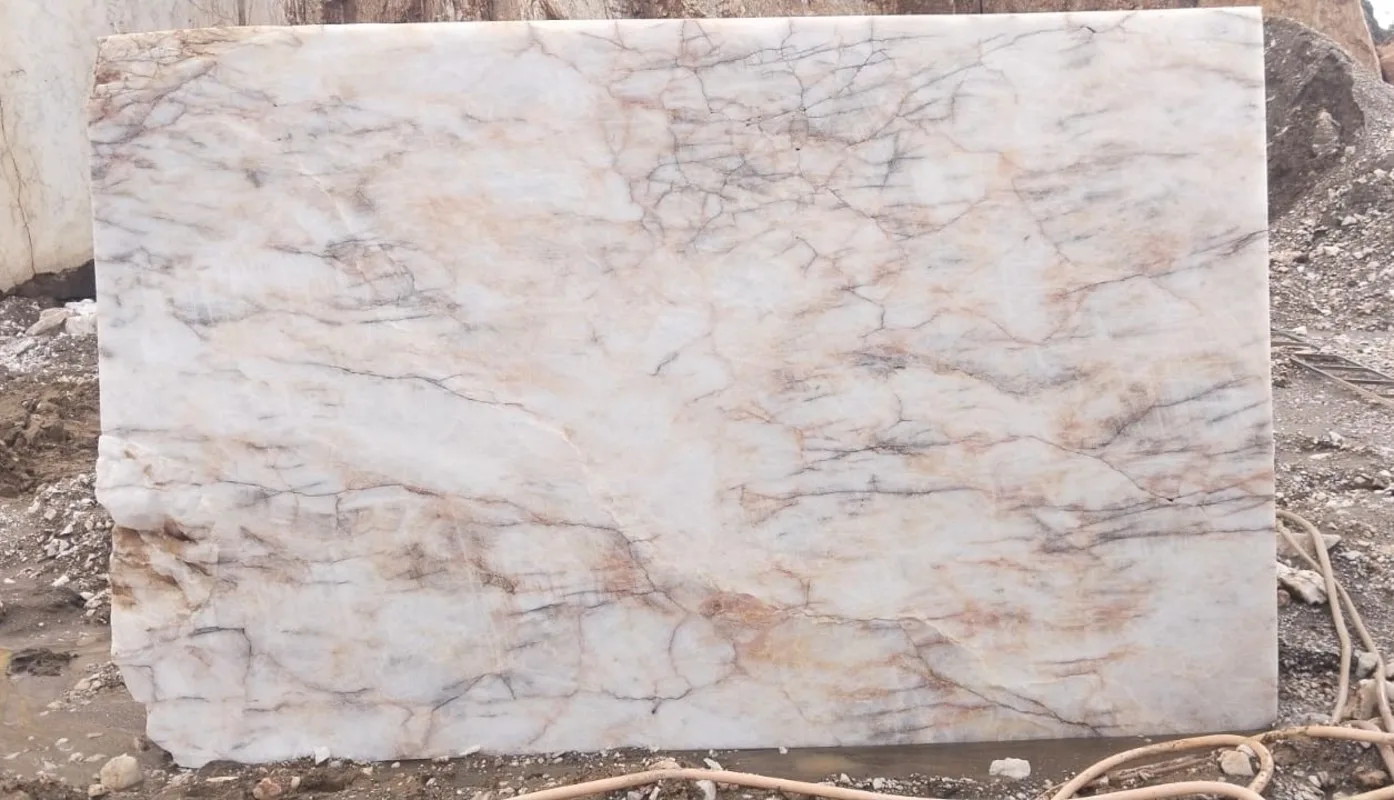
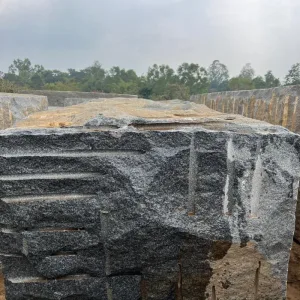
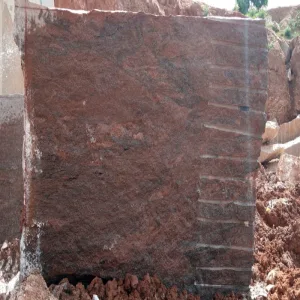
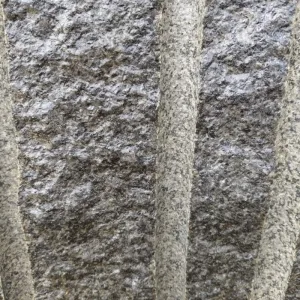
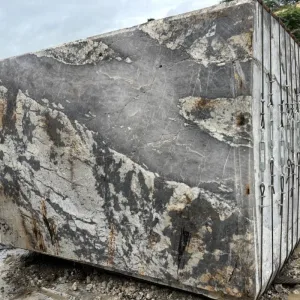
Reviews
There are no reviews yet.